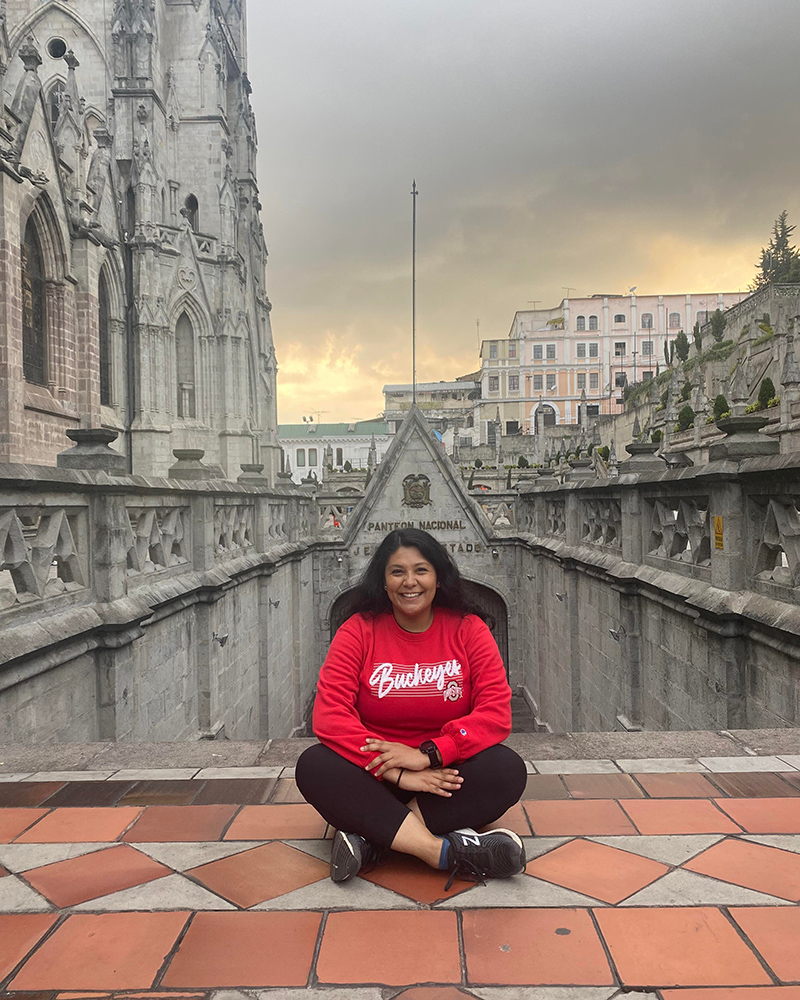 Igdalia Covarrubias in Ecuador
Igdalia Covarrubias in Ecuador
A doctoral student in higher education and student affairs, Igdalia Covarrubias studied abroad on the College of Education and Human Ecology Sustainability and Social Justice in Ecuador program during winter break 2022.
My educational abroad experience was made memorable because of the people I met, the places I visited, and the diverse experiences I was able to have while abroad. Although I had the opportunity to study abroad as an undergraduate student in the United Kingdom in 2014, this experience was much different from the one before. This time, I was able to live with a host family and gain a glimpse into different cultural foods, customs, and traditions, which was not possible years ago.
Another difference from this program was that I was not only able to visit indigenous communities but also hike, dance, and share a meal with these communities as well. Lastly, as a PhD student, it is not every day I get the opportunity to mentor undergraduate students, especially abroad, so designing and leading group reflections/debriefing activities with a specific focus on sustainability and social justice issues was truly a gift.
Last year, I had the opportunity to take an Advanced Qualitative Inquiry toward Educational Equity & Social Justice course within the Department of Educational Studies at The Ohio State University. In this course, I learned about the complexities of qualitative inquiry and what it means to conduct research that leads toward a more racially equitable and just society. As someone who self-identifies as Chicana/Latina, I was interested in studying abroad in an area that would allow me the opportunity to not only connect with my indigenous roots but also the opportunity to gain a deeper understanding of the racial, ethnic, and cultural diversity that exists throughout Latin America.
You can never stop learning. Before going to Ecuador, I learned that Ecuador’s official language was Spanish. Having been raised in a Spanish-speaking household, I thought I could get by with speaking Spanish abroad, but I was wrong. The same Spanish I learned at home was not the same Spanish used abroad. One of the most valuable lessons I learned abroad was that the Latinx community is not a monolith. This means that not all of us are brown, and we do not all speak Spanish. I also learned that just because you are fluent in Spanish does not mean all words are transferable abroad. Moreover, words can have different meanings specific to cultures and societies. In Ecuador, there are 13 languages. These languages include Spanish, Quichua, Shuar, and ten other languages. My advice to anyone bound to study abroad (or who is returning like me) is to never stop learning because life never stops teaching.